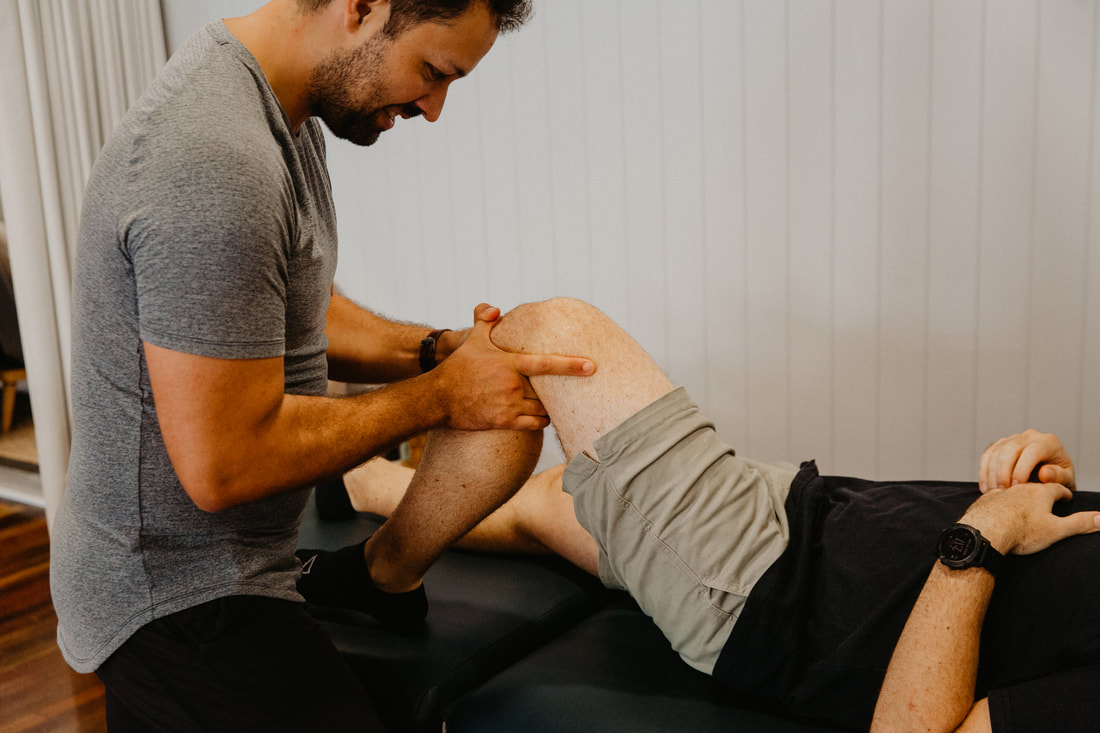Meniscal tear physiotherapy Brisbane southside.
Meniscal tears are one of the most common knee injuries, affecting people of all ages and activity levels. This injury can occur during sports activities or even just from everyday movements. If you have been diagnosed with a meniscal tear, you may be wondering what it means and what your treatment options are.
What are meniscal tears?
The meniscus is a piece of cartilage in the knee joint that acts as a shock absorber and provides stability to the knee. A meniscal tear is a tear in this cartilage, which can occur due to a sudden twisting or bending motion of the knee, or from wear and tear over time. Meniscal tears can range from minor to severe and may require different treatment options based on the severity and location of the tear.
How are meniscal tears diagnosed?
If you suspect that you have a meniscal tear, it is important to see a healthcare professional who can diagnose and treat the injury. A physiotherapist or orthopedic surgeon will typically perform a physical exam to assess the knee’s range of motion, stability, and pain levels. They may also order imaging tests, such as an MRI or X-ray, to confirm the diagnosis and evaluate the extent of the tear.
How can physiotherapy help after a meniscal tear diagnosis?
Physiotherapy is an effective treatment option for meniscal tears, as it can help to reduce pain and inflammation, improve knee function and range of motion, and prevent further damage. Depending on the severity of the tear, your physiotherapist may recommend a variety of treatment options, such as:
How can clinical Pilates help with meniscal tears?
Clinical Pilates is a form of exercise that emphasises proper movement patterns, alignment, and core stability. This type of exercise can be particularly beneficial for individuals with meniscal tears, as it can help to improve knee alignment, reduce stress on the joint, and strengthen the muscles that support the knee.
In clinical Pilates, a physiotherapist will guide you through exercises that focus on proper alignment and control, helping to reduce the risk of further injury. These exercises are often low-impact and can be modified to accommodate any physical limitations or pain you may be experiencing.
Other treatment options for meniscal tears
In some cases, meniscal tears may require more invasive treatment options, such as surgery. However, in many cases, physiotherapy and exercise can be effective in managing pain and improving knee function. Your healthcare professional will work with you to determine the best treatment options for your individual needs.
If you have been diagnosed with a meniscal tear, it is important to seek treatment as soon as possible to prevent further damage and reduce the risk of complications. A physiotherapist can help you develop a personalised treatment plan to manage your symptoms and improve your knee function.
Call our friendly clinic a call on 07 3706 3407, email [email protected] or make your initial appointment booking via the link below.
What are meniscal tears?
The meniscus is a piece of cartilage in the knee joint that acts as a shock absorber and provides stability to the knee. A meniscal tear is a tear in this cartilage, which can occur due to a sudden twisting or bending motion of the knee, or from wear and tear over time. Meniscal tears can range from minor to severe and may require different treatment options based on the severity and location of the tear.
How are meniscal tears diagnosed?
If you suspect that you have a meniscal tear, it is important to see a healthcare professional who can diagnose and treat the injury. A physiotherapist or orthopedic surgeon will typically perform a physical exam to assess the knee’s range of motion, stability, and pain levels. They may also order imaging tests, such as an MRI or X-ray, to confirm the diagnosis and evaluate the extent of the tear.
How can physiotherapy help after a meniscal tear diagnosis?
Physiotherapy is an effective treatment option for meniscal tears, as it can help to reduce pain and inflammation, improve knee function and range of motion, and prevent further damage. Depending on the severity of the tear, your physiotherapist may recommend a variety of treatment options, such as:
- Range-of-motion exercises: Gentle movements to maintain or improve knee flexibility and reduce stiffness.
- Strengthening exercises: Targeted exercises to build strength in the muscles surrounding the knee joint to improve knee stability and reduce pain.
- Manual therapy: Hands-on techniques, such as massage or joint mobilisation, to reduce pain and stiffness.
- Electrical modalities: Such as ultrasound, laser or TENS, which can help to reduce pain and inflammation.
How can clinical Pilates help with meniscal tears?
Clinical Pilates is a form of exercise that emphasises proper movement patterns, alignment, and core stability. This type of exercise can be particularly beneficial for individuals with meniscal tears, as it can help to improve knee alignment, reduce stress on the joint, and strengthen the muscles that support the knee.
In clinical Pilates, a physiotherapist will guide you through exercises that focus on proper alignment and control, helping to reduce the risk of further injury. These exercises are often low-impact and can be modified to accommodate any physical limitations or pain you may be experiencing.
Other treatment options for meniscal tears
In some cases, meniscal tears may require more invasive treatment options, such as surgery. However, in many cases, physiotherapy and exercise can be effective in managing pain and improving knee function. Your healthcare professional will work with you to determine the best treatment options for your individual needs.
If you have been diagnosed with a meniscal tear, it is important to seek treatment as soon as possible to prevent further damage and reduce the risk of complications. A physiotherapist can help you develop a personalised treatment plan to manage your symptoms and improve your knee function.
Call our friendly clinic a call on 07 3706 3407, email [email protected] or make your initial appointment booking via the link below.
Who to book in with:
Yulia Khasyanova
|
Monica Hanna
|
Emma Cameron
|



